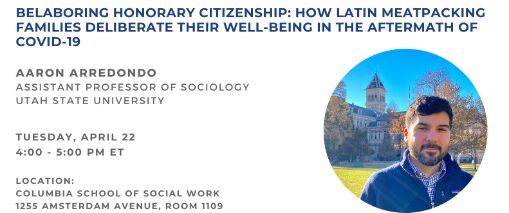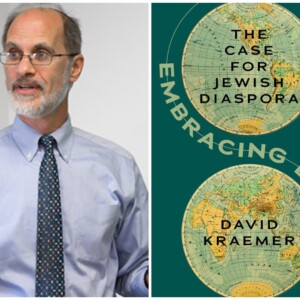
CPRC Seminar Series with Professor Aaron Arredondo
This discussion illustrates how Latine immigrants have managed their racialized status as hyper-exploitable and patronized subjects in the rural sphere since the onset of COVID-19. The analysis draws on community-engaged ethnographic methods comparing West Central Missouri and Cache Valley Utah—each region constituting its state’s agro-industrial corridor. Both are maturing immigrant destinations where Latines’ 1990s settlement for work in meatpacking disrupted rural American White homogeneity. Findings animate how Latines’ COVID-19 experiences on the meatpacking shopfloor have corresponded with distinctive strategies asserting dignity, according to each context’s racial-ideological structure. The talk considers policy implications for Latine residents’ social, familial, and occupational well-being in two ruralities highly dependent on their labor in such hyper-exploitative industry.
Aaron Arredondo is an Assistant Professor of Sociology at Utah State University. His research intersects critical immigration theory with sociology’s newly defined area on the racialization of space. Aaron has named this perspective the spatialization of critical immigration studies (SCIMS). His work has been published in Ethnic and Racial Studies, Sociological Inquiry, among other leading social science journals. Aaron’s book monograph draws on community-engaged ethnographic methods examining Latine immigrants’ experiences of racialized space, labor, and (non-)belonging across diversifying American ruralities.




